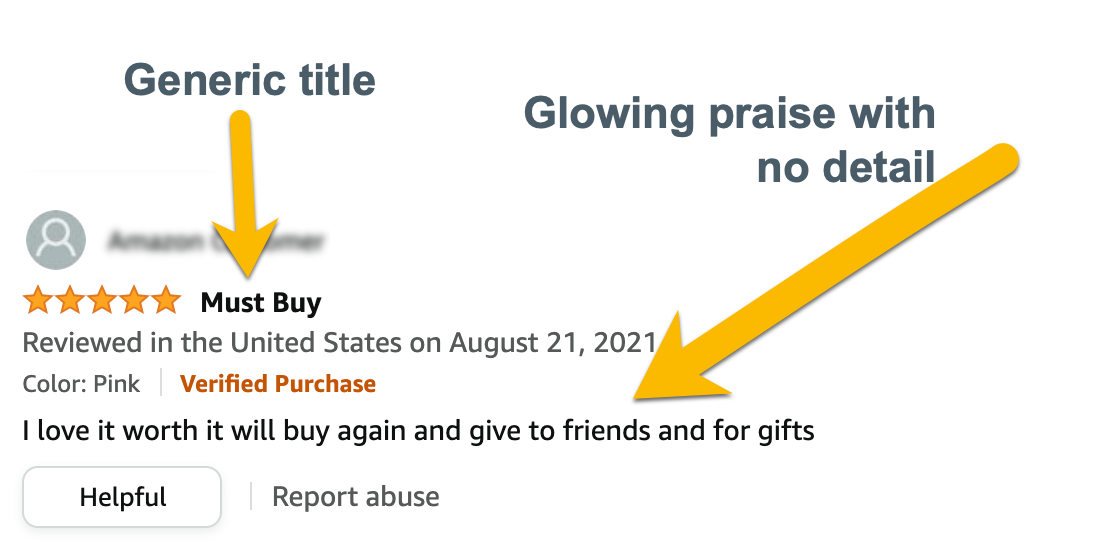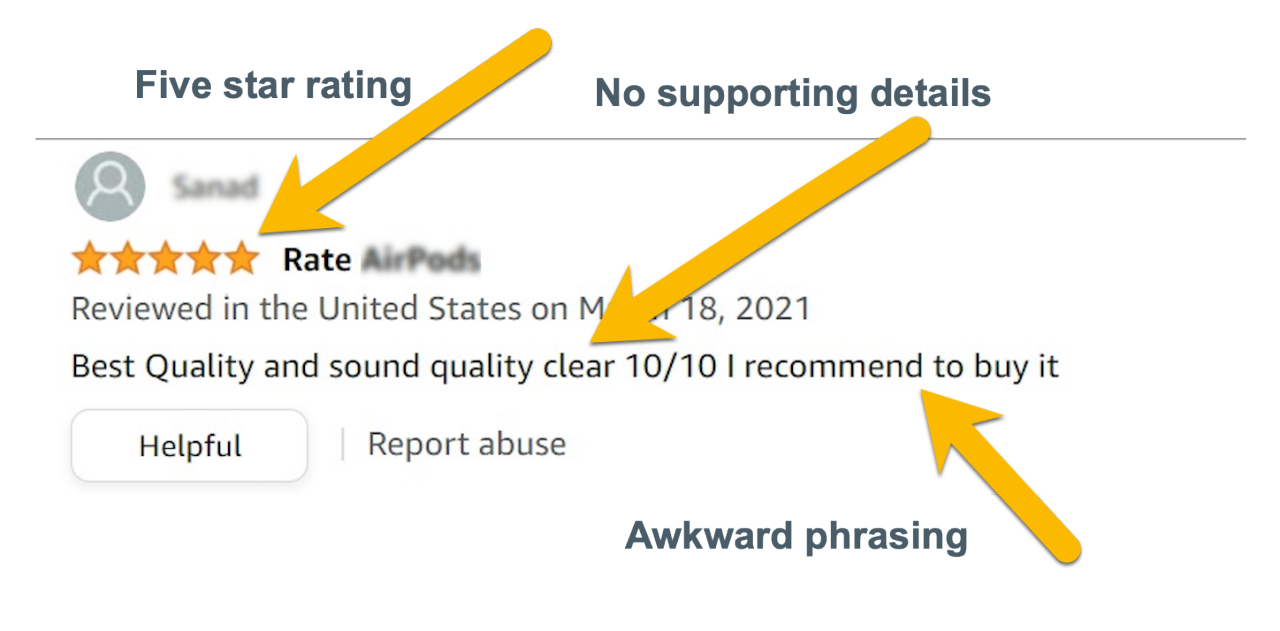BBB Tip: How to spot a fake review
Despite e-commerce websites' best attempts, getting rid of every fake review quickly is nearly impossible. As a consumer, the key is knowing when to pass on a product by recognizing red flags in phony reviews.
 Most online shoppers read reviews. But how do you know if they are real or fake?
Most online shoppers read reviews. But how do you know if they are real or fake?
Good reviews are important. Shoppers depend on customer reviews to make the right decisions. They are also a determining factor in ranking algorithms and can lead to better visibility and more sales. It’s no surprise that dishonest sellers often post fake reviews.
E-commerce websites often have tools in place to analyze and remove fake reviews, but as sellers continually find new ways to craft fake reviews and hire thousands of people to post them, getting rid of every fake review quickly is nearly impossible. As a consumer, knowing when to pass on a product by recognizing red flags in phony reviews is key.

Easy ways to recognize fake reviews
- Look out for generic reviewer profiles. If a reviewer has a very common or generic name, such as John Smith or Jane Doe, you’ve spotted a red flag. Fake reviewers usually post under fake names, sometimes even just a series of letters and numbers, and rarely do they have a profile picture.
- Read reviews by customers with verified purchases. Many e-commerce sites add a badge or otherwise indicate if a purchase is verified, meaning the reviewer bought the product on the same site where they wrote the review. Reviews of non-verified purchases are much more likely to be fake.
- Examine the quality and timing of product reviews. A good review will briefly explain why or why not the product in question was a good purchase. If you notice a product has several five-star or one-star reviews with just a word or two in the written portion of the review, or if the reviews use language that is generic, studded with irrelevant details, or overly enthusiastic, you may be looking at fake reviews. This is especially true if you notice multiple, similar reviews posted during a short window of time. The rise of generative AI has made it much easier to post fake reviews - and harder for consumers to spot them - so it's a good idea to check multiple websites and compare reviews of an item or service.
- Be wary of scene-setting. A study by Cornell University found that truthful reviewers usually include concrete words relating to the product or service they purchased, whereas fake reviewers like to set the scene. They may talk about how “their husband” visited a specific hotel for a “vacation” or “business trip” instead of focusing on the actual hotel experience. This is another fake review red flag.

- Check the grammar and spelling. Sometimes sellers outsource their fake reviews to content farms, where people who are not native English speakers write reviews. The result is fake reviews with misspellings and poor grammar. If you read a review out loud and it doesn’t sound natural, it could be a fake.
- Find out if the reviewer received a free product. Some e-commerce platforms have programs that pre-release products to customers in exchange for their honest reviews. One example is Amazon Vine. This kind of program is usually legitimate and can be helpful, but if you notice almost every review of a product comes from someone who received a free product, think twice. It’s also good to take a look at the reviews overall. If the only satisfied customer was the one who received a free product, it might not be worth buying.
- Look at the quantity of reviews. Business Insider warns that if a product only has a few reviews, especially in comparison to similar products, it’s likely the product is less than reliable.
- Try a tool for spotting fake reviews. There are third-party tools available to help you weed out fake reviews. Some provide a letter grade based on how many fake reviews were spotted, while others eliminate fake reviews to provide consumers with an adjusted star rating. These tools aren’t infallible, though, so instead of expecting a black-and-white answer, use them to assist you in making a purchasing decision.
- Report fake reviews. Most platforms allow you to report abuse if you notice a fake review. Doing so can help the platform eliminate fake reviews faster, and it can protect your fellow consumers.
- Fake reviews are prohibited by the FTC. In August 2024, the Federal Trade Commission (FTC) announced a new final rule that prohibits fake or false consumer reviews, consumer testimonials or celebrity testimonials. This rule will now allow the FTC seek civil penalties against knowing violators.
For more information
Read up on brushing scams to make sure no one posts a fake review in your name. To learn more about staying safe while making online purchases, read the BBB Tip: Smart Shopping Online.
Report suspicious activities to BBB Scam Tracker.
Read more about BBB Accreditation Standards and BBB Standards for Trust.